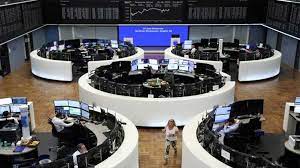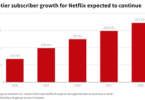LONDON (Reuters): Global stock markets were steady on Wednesday and the U.S. dollar drifted lower as attention turned towards next week’s pivotal inflation data and Federal Reserve meeting, where chances of a rate hike continued to ebb.
Meanwhile, Turkey’s lira plunged to a record low against the greenback as authorities appeared to loosen stabilising measures after the government signalled a pivot to more orthodox policies.
The pan-European benchmark STOXX 600 (.STOXX) index was flat, with small gains in British shares (.FTSE) offset by minor losses in German (.GDAXI) and French (.FCHI) stocks.
Spanish stocks (.IBEX) outperformed after shares in the world’s biggest fast fashion company Inditex (ITX.MC) jumped almost 7% following first-quarter results.
MSCI’s broadest index of Asia-Pacific shares outside Japan (.MIAPJ0000PUS) gained 0.7%, led by gains in Hong Kong (.HSI) and Taiwan (.TWII), while Japan’s Nikkei 225 (.N225) fell 1.8%, its sharpest fall in 12 weeks to snap a four-day winning streak.
That left the MSCI’s broadest index of world shares (.MIWD00000PUS) up just under 0.1% but close to its highest level in 13 months reached on Monday.
“The drivers behind the moves higher in equities have been there,” said Ben Laidler, global markets strategist at eToro, noting the debt ceiling deal and evidence deposits have been returning to the U.S. banking system.
“That’s given markets a little bit of room to run ahead of a U.S. inflation and the Fed meeting next week,” he added.
Wall Street futures were mixed after the S&P 500 (.SPX) gained 0.2% on Tuesday, finding support from strengthening bets that the Federal Reserve will hold interest rates steady at its policy meeting next week.
Investor angst also continues to subside with the CBOE’s VIX (.VIX), a measure of expected stock market volatility, closing below 14 on Tuesday, its lowest such close since February 2020, and the ICE BofA MOVE (.MOVE) index of bond volatility falling to its lowest level since Feb. 21.
The two-year Treasury yield, which typically moves in step with interest rate expectations, fell slightly to about 4.516% in London. The yield on 10-year notes slipped to around 3.687%.
The dollar fell 0.1% against a basket of currencies, while the Turkish lira weakened over 7% to a record low of 23.17 per dollar, its biggest one-day sell-off since the 2021 crash.
“It looks like the central bank’s efforts to fight a stronger dollar is either fading – after Erdogan’s victory in the latest elections – or keeping the lira steady is becoming more difficult and increasingly expensive,” said Ipek Ozkardeskaya, senior analyst at Swissquote Bank.
Data from China showed exports shrank much faster than expected in May and imports fell, albeit at a slower pace, as manufacturers struggled to find demand abroad and domestic consumption remained sluggish.
“The Chinese trade data is the latest indicator that tells you there’s nothing good going on in global demand,” eToro’s Laidler said.
“There’s a huge gulf in the global economy between services and manufacturing. This is a warning sign that global growth will slow from here. The question is how much,” Laidler added.
Oil prices edged higher as Saudi Arabia’s weekend pledge to cut output outweighed weak Chinese data.
Brent crude futures were up 73 cents, or 0.9%, at $77.01 a barrel. West Texas Intermediate crude futures rose 74 cents, or 1%, to $72.47 a barrel.
Gold was flat at $1,962 per ounce.
Bitcoin was trading at about $26,900, consolidating after a sharp rebound on Tuesday from as low as $25,350.
The token has been a paradoxical beneficiary of a U.S. Securities and Exchange Commission (SEC) crackdown on cryptocurrency exchanges, and the classification of tokens including Solana, Cardano and Polygon as securities.







